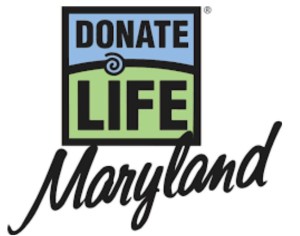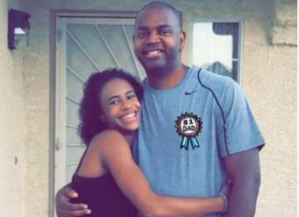By Megan Sayles,
AFRO Business Writer,
msayles@afro.com
April is known as National Donate Life Month, a time to promote the importance of people registering as organ, eye and tissue donors and to dispel misconceptions surrounding organ donation.
Across the United States, there are more than 100,000 people waiting for a life-saving transplant, according to the Organ Procurement & Transplantation Network (OPTN). In Maryland, there are currently 2,283 candidates on the transplant waiting list.
Donate Life Maryland (DLM), a state-authorized nonprofit, has managed the state’s donor registry since 2007. It collaborates closely with the hospitals and transplant centers that are a part of Infinite Legacy, a nonprofit organ procurement organization (OPO). The organization also works to raise awareness about organ, eye and tissue donation.
According to DLM, a person is added to the national transplant waiting list every nine minutes. Roughly 17 people die each day waiting to receive an organ transplant.
Individuals can register to become an organ donor when they renew their driver’s licenses, or they can register on DLM’s website. However, widespread misconceptions and myths can deter people from registering.
Some of these fallacies include religions prohibiting organ donation, hospitals and first responders withholding medical care from registered donors and organ donation preventing people from having open-casket funerals.
Peta Gale Cappello, a 67-year-old entrepreneur based in Prince George’s County, Md., has been living with a transplanted heart and lungs for nearly 29 years.
The South African native was diagnosed with an atrial septal defect, which caused her to experience pulmonary hypertension and weakened both her heart and lungs, during her early adulthood.
At the time, South Africa did not have hospitals that conducted organ transplantation, so she traveled to England in 1992 to wait for a transplant. After 22 months, she was informed that organs were available.
“They came from a 17-year-old boy named Michael Graham. He had passed away, and they gave me the call in the middle of the night. I rushed up to Harefield Hospital in England, and I received young Michael’s heart and both his lungs,” Cappell told the AFRO.
“I was very, very blessed because it’s not common to give all three organs to one person.”
A few years prior to her transplant surgery, Cappello met her husband, Mike, a Maryland resident. In 1995, the couple married, and they’ve resided in the state ever since.
Immediately after her transplant surgery, Cappello contacted her donor’s mother, Maria, to express her condolences and gratitude. She wrote back asking Capello to keep in touch and sent a photo of Michael.
On the ninth anniversary of Cappello’s transplant, Maria traveled to meet her in person after years of writing to each other. The pair now regard each other as family.
“I always say to Maria, ‘I just have to live a good life for Michael,’ because he was so much younger than me. I was 38, and he was 17,” said Cappello.
“Michael lost out on so much, so my husband and I travel and just do everything that we can possibly do. We don’t sit and mope because life’s too short.”
Today, Capello serves as a Donate Life ambassador for Maryland, and she runs Sebenza, a small business that specializes in professional staffing services across the information technology, defense, aerospace, software manufacturing and engineering industries.
Her and her husband spend their vacation time traveling across the country with the goal of visiting all seven continents.
“There’s lots of myths [surrounding] why people don’t want to donate. Some people feel like they’re not going to be whole when they go to heaven, but I think God wants us to share the gift of life,” said Cappello.
“I really do believe that, and when you think about it, you can save so many lives with just one person.
Megan Sayles is a Report for America Corps member.
The post Donate Life Maryland highlights transplant recipient’s story for National Donate Life Month appeared first on AFRO American Newspapers .











